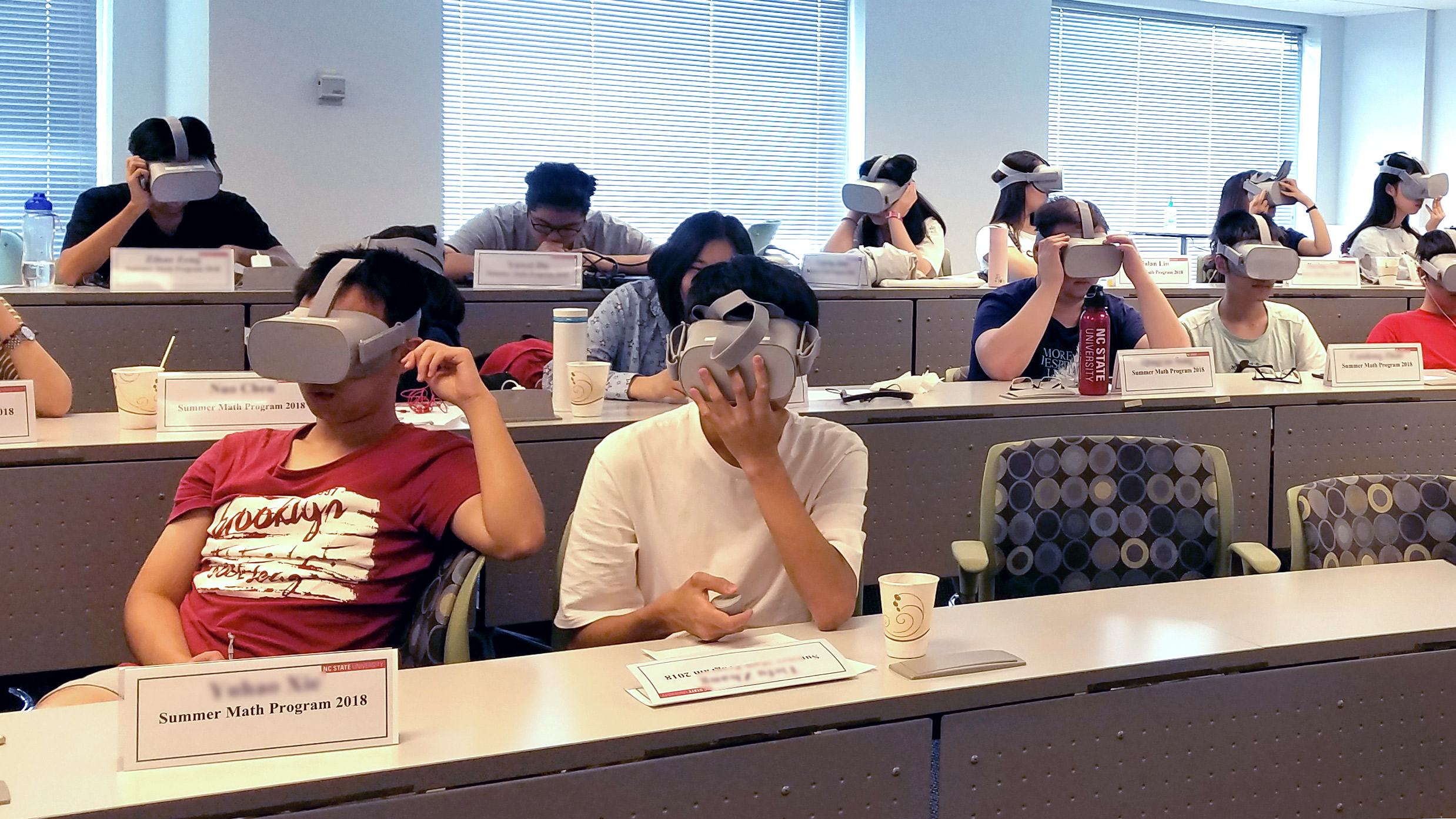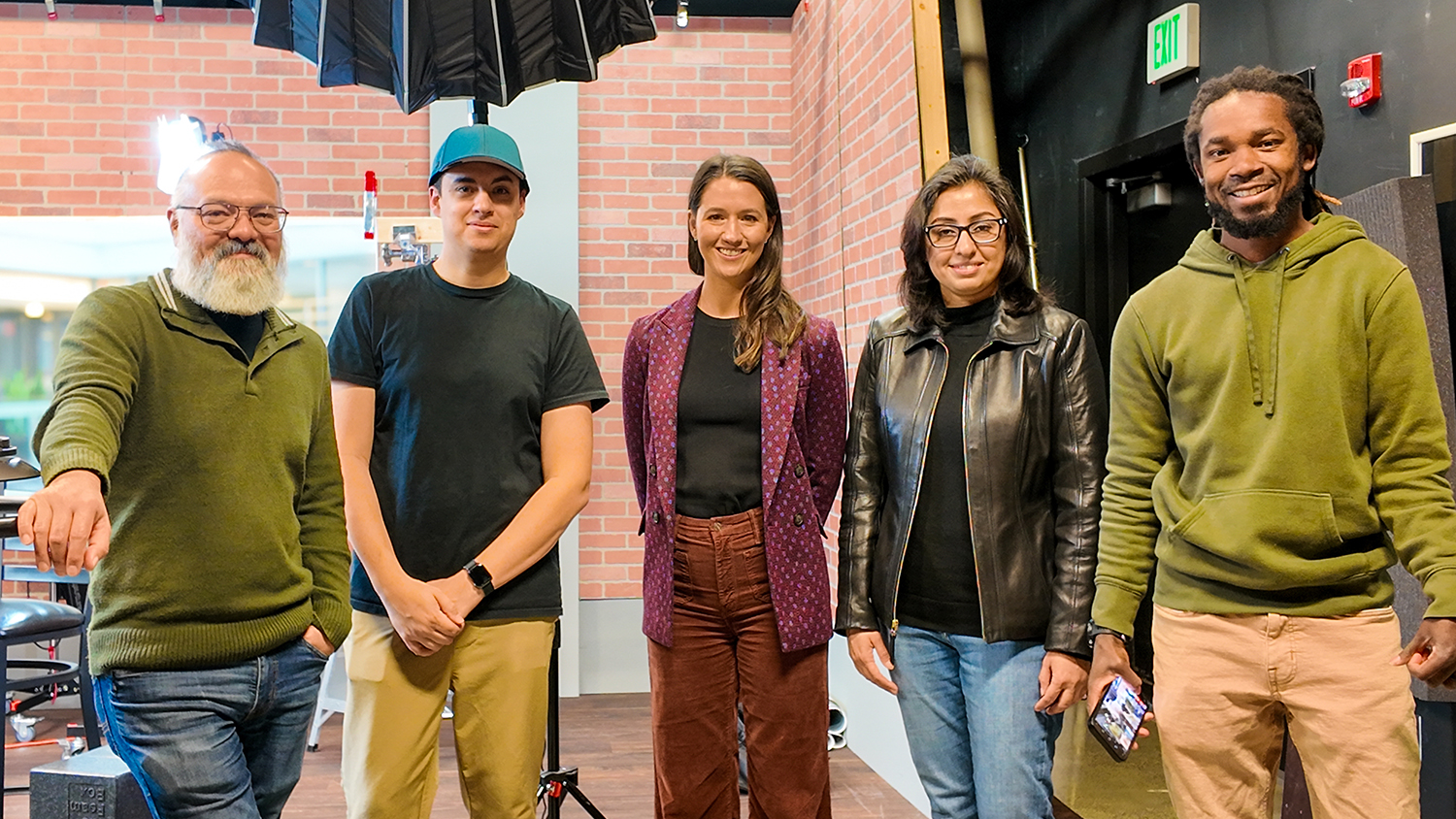Cultural Competency Module Receives Campus Technology Impact Award

The First Impressions virtual reality (VR) module received a 2018 Campus Technology Impact Award in the Teaching and Learning category.
Developed in partnership with the Global Training Initiative (GTI) through a DELTA Exploratory Grant, the First Impressions interactive VR experience allows students to dive into the minds of a global project team to learn about culture on both a cognitive and emotional level.
A number of people from DELTA and GTI contributed to this project:
- Ilin Misaras – Assistant Director, GTI
- Michael Bustle – Director, GTI
- David McNeill – Associate Director, GTI
- Ivonne Chirino-Klevans – former Assistant Professor, College of Education
- Taylor Dawson – Project Lead, former Instructional Designer, DELTA
- Mike Cuales – Creative Director, Media Development Lead, VR Producer, DELTA
- Arthur Earnest – 360 Video Producer, DELTA
- Todd Buker – Director, Audio Producer, DELTA
- Thomas Crocker – 360 Video Editor, DELTA
- Merranie Zellweger – Project Coordinator, DELTA
- Stephanie Lee Huang – VR Interaction Designer, DELTA
- Michael Castro – Production Assistant, DELTA
According to the project team, the original goal of the project was to explore the design and development process for creating immersive virtual reality scenarios that teach key cultural competency concepts, skills and abilities as well as design a framework and process model to be used for future creation of similar learning experiences.
“Through our team’s collective experiences in video production, multimedia development, industrial design and immersive technologies, we were able to develop a cost-effective approach to producing a realistic, first-person point-of-view VR experience,” said Creative Director Mike Cuales.
About the Project
The First Impressions VR-mediated lesson includes two scenes and is used as part of a course aimed at developing global management and leadership skills.
In the first scene, individuals observe a global business meeting in Asia. During the meeting, there are several employees from different cultures whose task is to work together on a global project. The scene represents several interactions among the employees as they engage in different conversations that lead to conflict. During this part of the experience, users can start to see and feel some of the tension based on the employees’ interactions.
The second part of the virtual experience allows the user to select one of the employees and assume their role from a first-person point of view. The first-person perspective is further enhanced by freezing time and hearing the thoughts of your alternate self. These thoughts reveal cultural assumptions that represent different cultural dimensions involved in communication. The resulting experience gives students a sense of visual and audible presence that differs from traditional media forms.
“A key component of developing cross-cultural competency is the ability to empathize with those of a different culture. VR technology is a unique means of experiencing another person’s perspective. It gives the participant an emotive and more sympathetic experience of seeing life through another’s thoughts and feelings. We like to call it, ‘developing your new superpower, the ability to read minds across cultures’,” said GTI Associate Director David McNeill.
Making an Impact
The exercise is aimed at developing awareness of key components of cultural competence including difference and empathy. It provides students with an opportunity to better understand other cultures in a low-stakes, highly immersive environment.
According to GTI Assistant Director Ilin Misaras, the module reaches students in GTI 401 which is taught to new international students and study abroad exchange students. GTI invested in a classroom set of Oculus Go VR headsets to offer workshops to larger groups and deploy the module as broadly as possible.
One participant said of the virtual reality experience, “At first I thought the person was just really rude, but then I got to be inside their head and hear why they were acting and saying the things they were saying. I realized there was a rational reason they did it. They were actually acting out of good motives with a logical framework, even if it was a rude and very different way than I would have acted in the same situation.”
Since many students are not able to study abroad due to a variety of factors, the First Impressions module gives an insight into other cultures in relation to conflict and leadership. For all students, the module will give them a competitive edge in the job market after graduating from NC State.
“The ability to communicate effectively and understand how to bridge cultural gaps is an important skill to have and practice in today’s global economy. There are very few jobs out there today where you won’t be working with or interacting with someone from a different culture,” added Misaras.
This type of immersive virtual reality module can be adapted to fit a variety of real-world contexts to teach cultural competency. According to Cuales, there are many institutions and corporations that could benefit from a VR simulation that teaches their employees about the importance of understanding and appreciating other cultures.
The First Impressions module will continue to be offered to campus departments and units interested in valuable global skills training. The module is part of a larger initiative to research and implement immersive technologies in online and face-to-face courses to further student success.
This is the First Impressions virtual reality module’s second award this year. The project won a 2018 International Serious Play Awards bronze medal in May.
Related:
Campus Tech: Using VR to Help Students Understand Cultural Differences
Global VR: First Impressions Portfolio
- Categories:


